About the Summit
Project Liberty and The Anxious Generation Movement invite you to join Utah Governor Spencer Cox, former House Majority Leader Dick Gephardt, and a select group of state legislators, executive leaders, and civic experts for an intimate convening focused on advancing a healthier digital ecosystem. This invitation-only convening will take place immediately following the NCSL Legislative Summit. Together, we will explore bold, actionable pathways for state-level leadership to shape a more responsible and accountable digital future.
Speakers
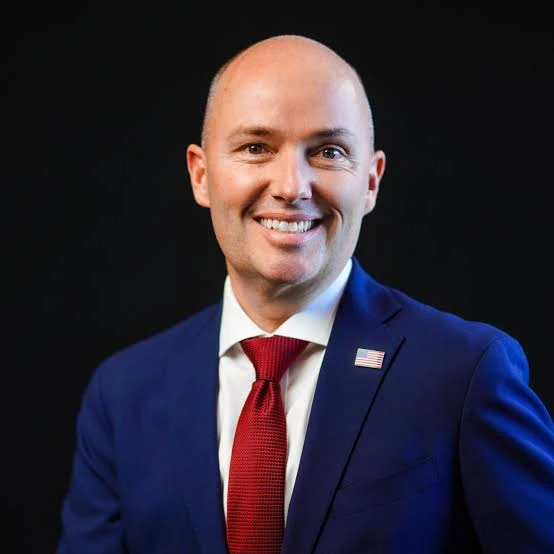
Gov. Spencer J. Cox is a husband, father, farmer, recovering attorney, and Utah’s 18th governor. He also served as the 2023-2024 chairman of the National Governors Association. Gov. Cox has a long track record of public service, serving as a city councilmember, mayor, county commissioner and state legislator before being appointed as Utah’s lieutenant governor in 2013. He was sworn in as governor on Jan. 4, 2021. A long-time advocate for suicide prevention and mental health resources, Gov. Cox become a national voice on protecting youth from the harms of social media. He also signed early education and workforce program funding, launched the One Utah Health Collaborative, and expanded opportunities for women, diverse communities and those living in rural parts of the state. A sixth-generation Utahn, Gov. Cox was born and raised in Fairview, a town of 1,200 in the center of the state. He met First Lady Abby Palmer Cox at age 16 and they married after he returned from serving a two-year mission for The Church of Jesus Christ of Latter-day Saints in Mexico. He attended Snow College, Utah State University and the Washington and Lee University School of Law, then clerked for U.S. District Judge Ted Stewart and worked at a Salt Lake City law firm. Several years later, Gov. Cox and First Lady Cox moved back to Fairview to raise their four children – Gavin, Kaleb, Adam, and Emma Kate – on the family farm. The governor, first lady and Emma Kate currently reside in the Kearns Mansion, also known as the Governor’s Mansion, in Salt Lake City.
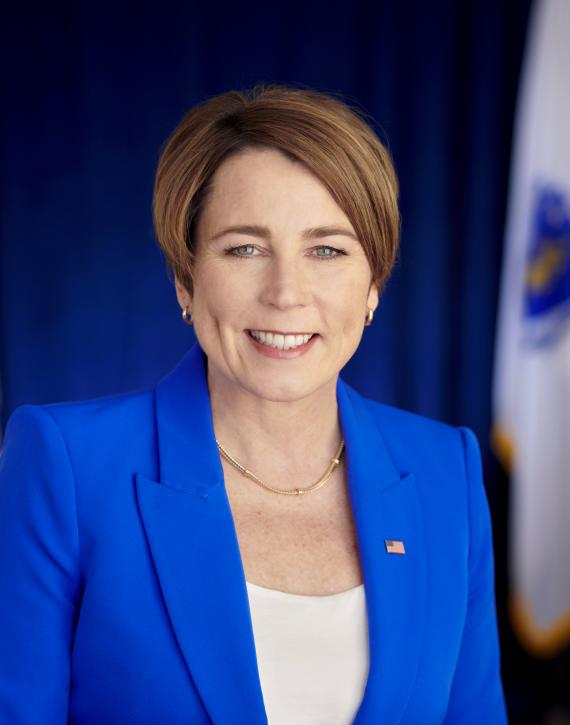
Maura Healey is the 73rd Governor of Massachusetts. In 2022, she became the first woman elected Governor in state history and the first openly lesbian Governor elected in the country. In her first two years in office, Governor Healey has led the state from strength to strength and delivered on her promises to the people of Massachusetts. She cut taxes for the first time in 20 years, establishing the most generous universal child tax credit in the country. To fix the high cost of housing, Governor Healey filed and signed the historic $5 billion Affordable Homes Act. Governor Healey has kept Massachusetts #1 for education, lowered health care and energy costs for thousands of working families and expanded benefits for veterans through the historic HERO Act. Under Governor Healey’s leadership, the MBTA is finally working, and she has proposed a historic $8 billion plan to upgrade roads, bridges and public transportation across the state. Governor Healey supports Massachusetts global business leadership in cutting-edge industries like climatetech, life sciences, biotech, data centers and AI. She filed and signed the $4 billion Mass Leads Act to invest in Massachusetts’ growth and keep the state’s innovation economy the best in the world. To protect access to reproductive health care, including abortion, Governor Healey stockpiled mifepristone, signed Executive Orders protecting abortion patients and providers, and made over-the-counter contraception free. Governor Healey previously served two terms as Massachusetts Attorney General, first elected in 2014 and re-elected in 2018. In her role as the People’s Lawyer, she took on the tough issues affecting Massachusetts residents, including the opioid epidemic, climate change, health care costs, and student loan debt. Earlier in her career, Healey was a litigation partner at an international law firm. Governor Healey lives in Arlington, Massachusetts with her partner Joanna Lydgate and their family.
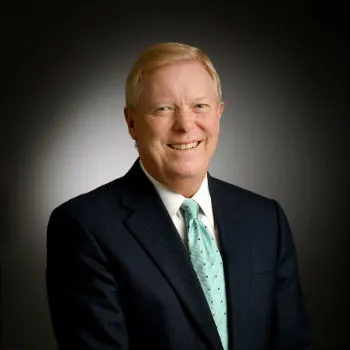
Richard Gephardt served for 28 years in the United States House of Representatives (from 1977 to 2005), representing Missouri’s 3rd Congressional District, home to his birthplace St. Louis. In his first year in Congress, he was appointed to both the House Ways and Means and Budget Committees. He was elected to serve as House Democratic Leader for more than 14 years, as House Majority Leader from 1989 to 1995, and Minority Leader from 1995 to 2003. In his role as Leader, Mr. Gephardt emerged as one of the leading strategists of the Democratic Party’s platform and chief architect to landmark reforms in healthcare, pensions, education, energy independence and trade policy. Mr. Gephardt has served with dozens of sitting Senators and members of Congress, supporting many of them during their campaigns, inductions into Congress and their time as colleagues. He enjoys strong bipartisan relationships and has continued to serve as a trusted adviser to senior officials in government and Congressional leadership.
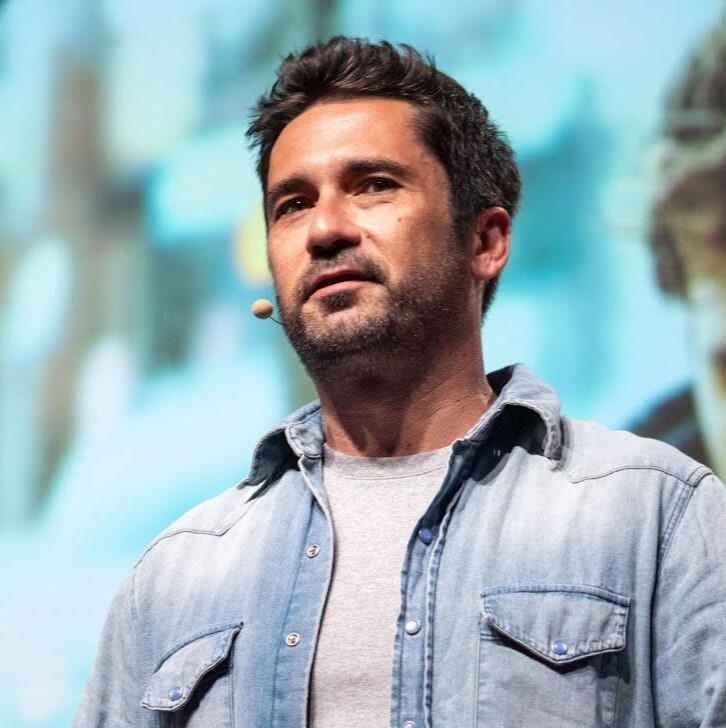
Casey Mock is Senior Policy Director for The Anxious Generation. Casey has spent his career designing and advocating for common-sense policies that respond to how emerging technologies shape society, most recently as Chief Policy and Public Affairs Officer for the Center for Humane Technology. He spent four years on the Amazon.com public policy team, where he led national tax policy for the company, and he has also served two governors, one of each party: as an appointee of Vermont Governor Phil Scott (R) to lead the Vermont Economic Progress Council, and as a nonpartisan director of budget policy for Minnesota Governor Tim Walz. Earlier in his career, he specialized in field operations for USAID-funded governance strengthening and rural development programs in settings like Ethiopia, Georgia, India, Indonesia, Kyrgyzstan, Pakistan, and Zimbabwe. He is a Returned Peace Corps Volunteer (Moldova), a member of the District of Columbia bar, and teaches graduate courses in technology ethics and policy at Duke University.
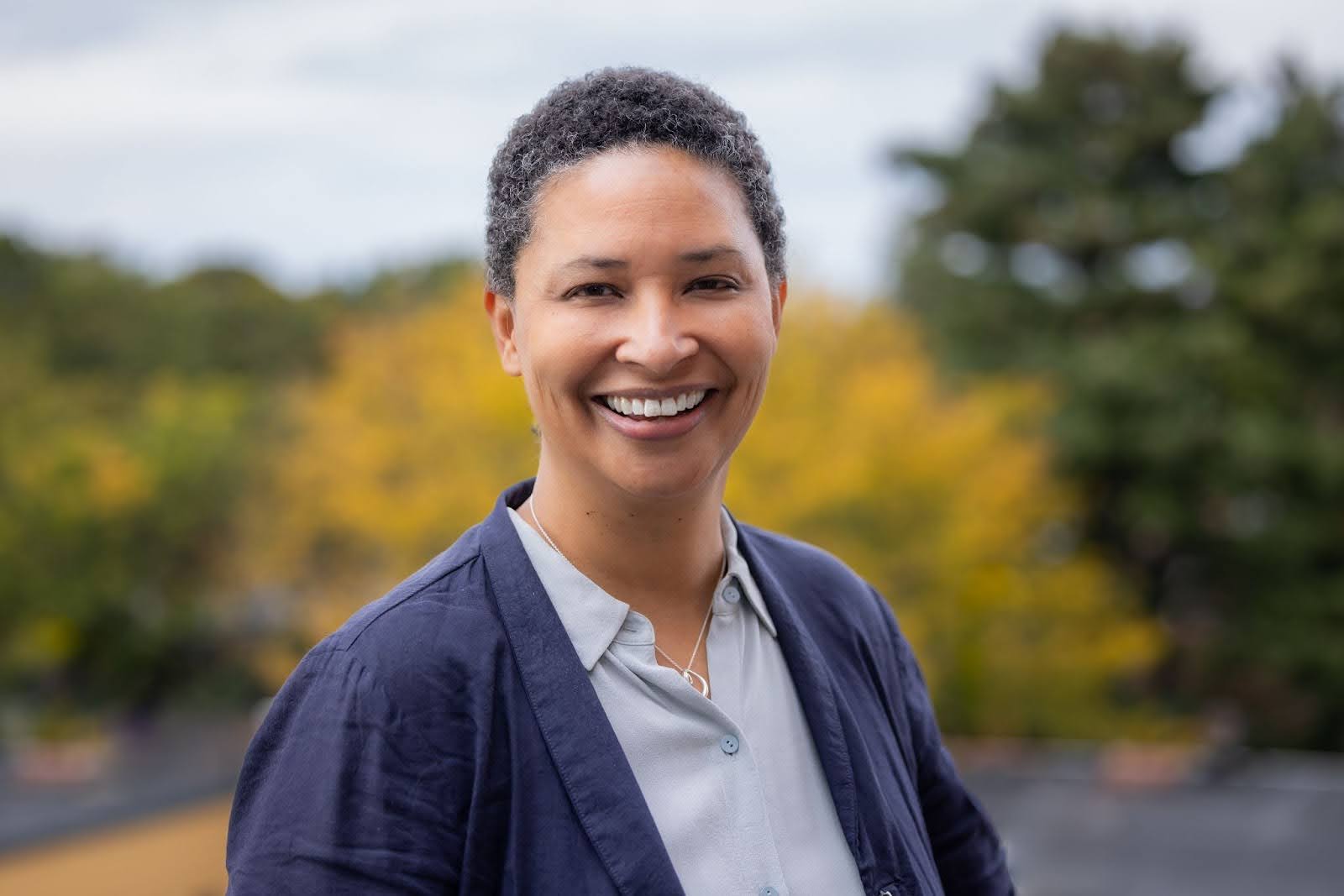
Danielle Allen is James Bryant Conant University Professor at Harvard University. She is a professor of political philosophy, ethics, and public policy and director of the Democratic Knowledge Project and of the Allen Lab for Democracy Renovation. She is also a seasoned nonprofit leader, democracy advocate, national voice on AI and tech ethics, distinguished author, and mom. A past chair of the Mellon Foundation and Pulitzer Prize Board, and former Dean of Humanities at the University of Chicago, she is a member of the American Academy of Arts and Sciences and American Philosophical Society. Her many books include the widely acclaimed Talking to Strangers: Anxieties of Citizenship Since Brown v Board of Education; Our Declaration: a reading of the Declaration of Independence in defense of equality; Cuz: The Life and Times of Michael A.; Democracy in the Time of Coronavirus; and Justice by Means of Democracy. She writes a column on constitutional democracy for the Washington Post. Outside the University, she is a co-chair for the Our Common Purpose Commission and Founder and President for Partners In Democracy, where she advocates for democracy reform to create greater voice and access in our democracy, and to drive progress towards a new social contract that serves and includes us all.

Congressman Jake Auchincloss is serving his third term representing the Massachusetts Fourth. In addition to his work on the House Committee on Energy & Commerce, his areas of focus include healthcare, clean energy, gun violence, and building a strong middle class. Jake was born and raised in Newton, Massachusetts, the son of a surgeon and a scientist. They showed him the value of curiosity and hard work. From the moment he could read, Jake loved American history. After graduating from Harvard College, Jake joined the Marines. He commanded infantry in Afghanistan and special operations in Panama. Upon returning home, Jake continued his service as a three-term city councilor in Newton. While working at City Hall on nights and weekends, Jake built a career in business, running product development at both a Fortune 100 insurance company and a cybersecurity startup. He has degrees in Economics and Finance from Harvard University and MIT Sloan. Today, Jake lives in Newton with his wife, Michelle, and their children, Teddy, Grace, and Audrey (along with their Labrador Retriever, Donut).
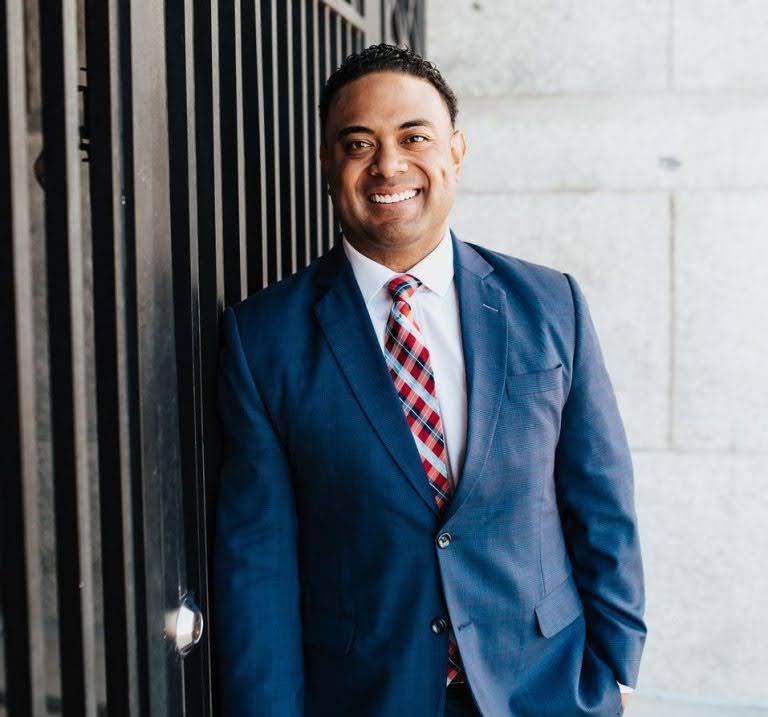
Doug Fiefia has served as a Republican member of the Utah House of Representatives since February 2025. He graduated from Utah State University with dual Bachelor’s degrees in Marketing and Business Administration. While at Utah State, Doug was elected twice as Student Body President and also served as President of the Utah Student Association (USA), representing more than 160,000 college students to the Utah State Legislature and the Commissioner of Higher Education. He later earned a Master of Business Administration (MBA) from Rice University. Doug has built a successful career in technology sales, leading teams at top companies like Workday and Google. He now works at Domo, where he leads strategic initiatives focused on partnerships and cloud growth. Doug is also the founder of Raise The Tide, a nonprofit that hosts quarterly events to support underrepresented minority groups in advancing their careers, businesses, and personal lives. Doug lives in Herriman with his wife, Jocelyn, and their four children. Family is at the heart of everything he does, and his commitment to serving the community is rooted in ensuring a strong future for the next generation.
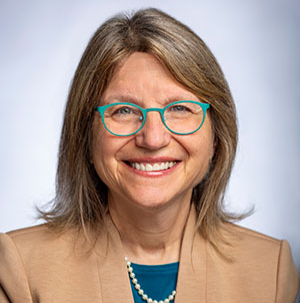
Since becoming MIT’s 18th president in January 2023, Sally Kornbluth has rallied the community to help solve the great challenges of our time. In 2025, Kornbluth introduced the MIT Generative AI Impact Consortium to explore how gen AI can spawn transformative solutions for real-world challenges and help ensure that its societal impact is broadly beneficial, and the MIT Initiative for New Manufacturing, an ambitious effort to make manufacturing more productive, more resilient and more sustainable, working with communities of every size across the country. She has also championed the Institute’s commitment to freedom of expression, while making sure everyone remains free to do their best work – and that the great work of MIT continues.

Frank H. McCourt, Jr. is a civic entrepreneur and the executive chairman of McCourt Global, a private family company committed to building a better future through its work across the real estate and infrastructure, sports, and technology and media industries, as well as its significant philanthropic activities.
He is the founder of Project Liberty, a far-reaching, $500 million initiative focused on leading a movement of people who want to take back control of their lives in the digital age by reclaiming a voice, choice, and stake in a better internet. The project includes the development of a groundbreaking, open-source internet protocol called the Decentralized Social Networking Protocol (DSNP), a piece of digital public infrastructure which will serve as the bedrock of a more equitable web and support a new era of innovation that empowers people over platforms and serves the common good. Project Liberty also includes the Project Liberty Institute, launched with founding partners Georgetown University in Washington, D.C., Stanford University in Palo Alto, CA, and ETH in Zurich, to advance research, bring together technologists and social scientists, and develop a governance model for the internet’s next era.
In 2024, Frank released his first book, OUR BIGGEST FIGHT: Reclaiming Liberty, Humanity, and Dignity in the Digital Age.
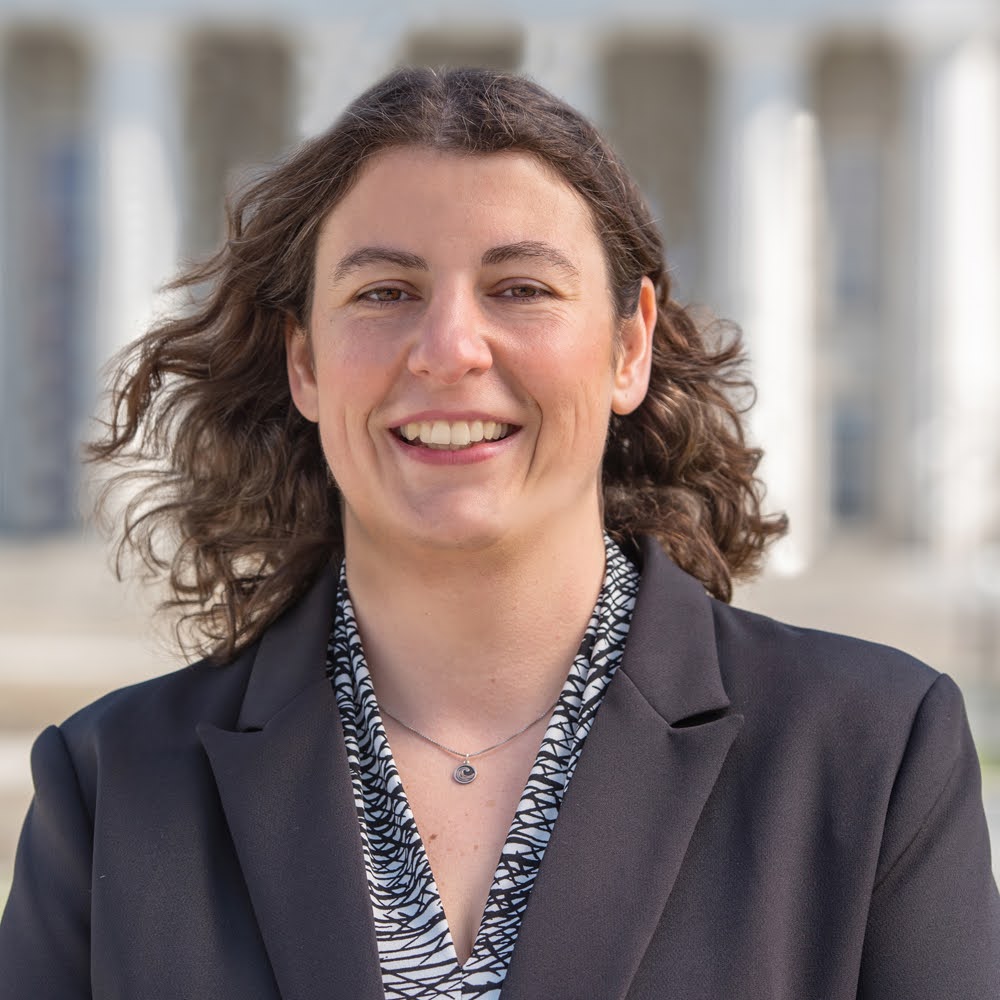
Monique Priestley (she/her) is serving her second term as a Vermont State Representative (Orange-2), focusing on consumer protection, especially in data privacy, artificial intelligence, and right-to-repair, as well as the future of work. She serves on the House Committee on Commerce & Economic Development, the Joint Information Technology Oversight Committee, and several national tech policy committees. She is Co-Chair of Vermont’s Rural Caucus, Co-Chair of the Future Caucus National Task Force on AI Policy, and a member of the Multi-State Legislative AI Working Group Steering Team. Monique was named a 2024 EPIC National Champion of Freedom and a Council of State Governments Top 20 Under 40. She is an alum of the NCSL Emerging Leaders Program, the Future Caucus Policy Innovation Lab Fellowship, the CSG Eastern Leadership Academy, and was selected for the 2025 CSG Henry Toll Fellowship.

Dr. Tomicah Tillemann is the President of Project Liberty, leading the Project’s efforts to build a better internet. His work focuses on providing digital citizens with more agency over their data, a voice in how digital platforms operate, and greater access to the benefits of the innovation economy. Prior to joining Project Liberty, he was the Chief Policy Officer of Haun Ventures where he helped build policy architecture for the next generation of the web. Previously, Tillemann was a partner and Global Head of Policy at Andreessen Horowitz (a16z). Tillemann also served as Senior Advisor to two Secretaries of State, and spent four years on the professional staff of the Senate Foreign Relations Committee working with Joe Biden, Tony Blinken, Barack Obama, and John Kerry. Tillemann also served as the Executive Director of the Digital Impact and Governance Initiative at New America and oversaw programs on social finance, technology, and democratic governance.
Tillemann is a co-holder of four patents. He has served as a member of the World Economic Forum’s Council for the Fourth Industrial Revolution, the UN World Food Program’s Innovation Advisory Council, and the Lantos Foundation’s Board of Trustees. He received his B.A. magna cum laude from Yale University and holds a Ph.D. with distinction from the School for Advanced International Studies at Johns Hopkins University.
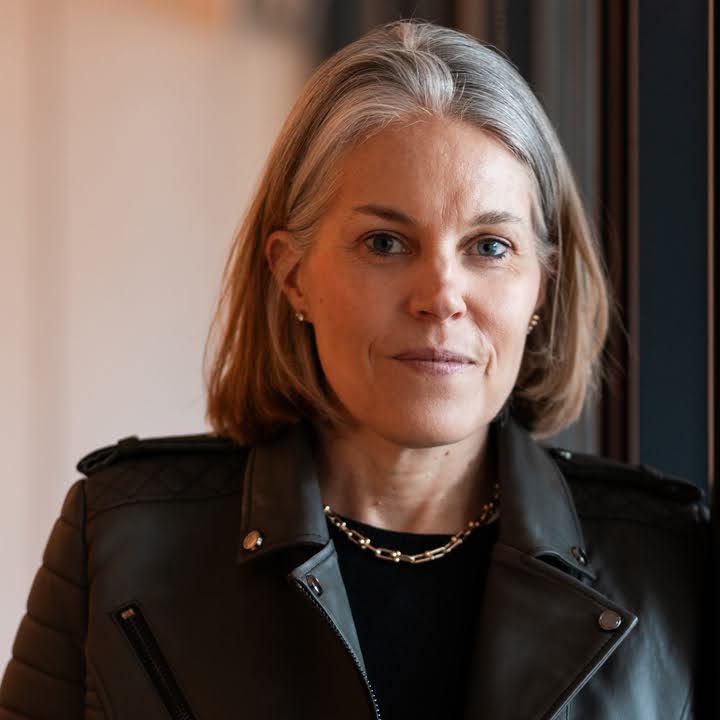
Elizabeth Bramson is the CEO and publisher of MIT Technology Review, the Massachusetts Institute of Technology’s independent media company. Since Elizabeth took the helm of MIT Technology Review in mid-2017, the business has undergone a massive transformation from its previous position as a respected but niche print magazine to a widely read, multi-platform, digital-first media organization with operations and reach spanning the globe. Under her leadership, MIT Technology Review has been lauded for its editorial authority, its best-in-class events, and its novel use of independent, original research to support both advertisers and readers. Prior to joining MIT Technology Review, Elizabeth held a senior executive role at The Economist Group, where her leadership stretched across business lines and included mergers and acquisitions; editorial and product creation and modernization; sales; marketing; and events. Earlier in her career, she worked as a consultant advising technology firms on market entry and international expansion.

Senator Erin Maye Quade represents District 56 in the Minnesota State Senate, covering Apple Valley, Rosemount, and part of Eagan. She serves as Vice Chair of the Education Policy and the State and Local Government Committees and lives in Apple Valley with her wife Alyse and daughter Hattie. First elected to the State House in 2016, her 2022 Senate election made her the first out lesbian, first Black woman, and first Black mom ever elected to the Minnesota State Senate. Senator Maye Quade champions tech and AI regulation, literacy education, reproductive justice, LGBTQIA2S+ rights, and disability justice. Her priorities include ending childhood hunger, eliminating gun violence, and supporting working families. She also serves as Special Projects Advisor at Gender Justice, an impact litigation non-profit dedicated to advancing gender equity.
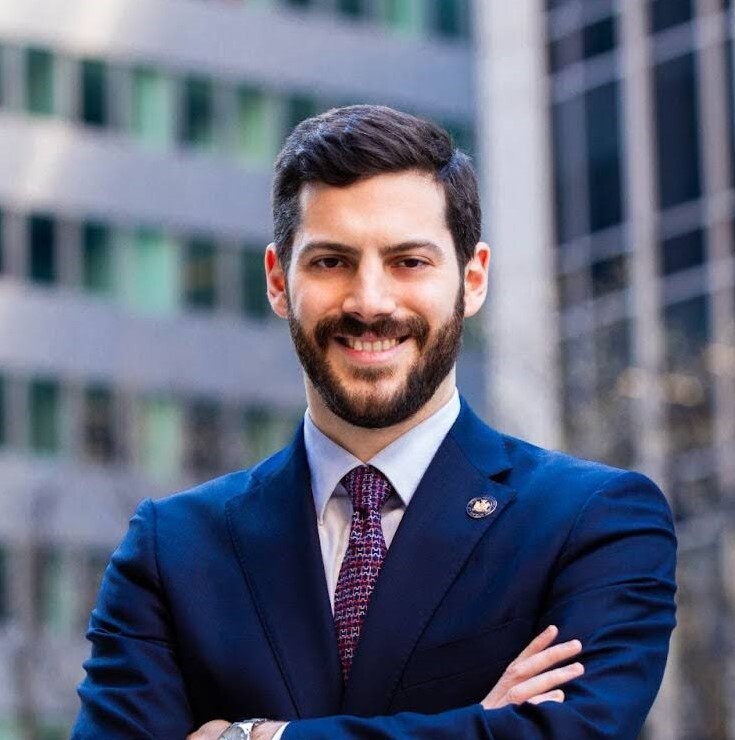
Alex Bores serves as Assemblymember for New York's 73rd District, covering Murray Hill, Turtle Bay, Sutton Place, Midtown East, and the Upper East Side. A fifth-generation New Yorker born and raised in the district, he focuses on making lives easier, families safer, and government more efficient. His legislative achievements include raising maximum fines on telemarketers, protecting employees' intellectual property rights, beginning the process to create new judicial seats to reduce trial delays, and requiring moped registration. He also passed legislation encouraging state cloud computing adoption, leveraging his computer science background as the only member of his party with such expertise. Alex maintains strong district presence, attending over 477 community events and resolving 325+ constituent cases in his first two years while securing $7.7 million in dedicated funding. He attended local public schools and earned degrees from Cornell and Georgia Tech. Before the Assembly, he worked as an engineer assisting law enforcement and building Covid relief software that helped 50,000 families.
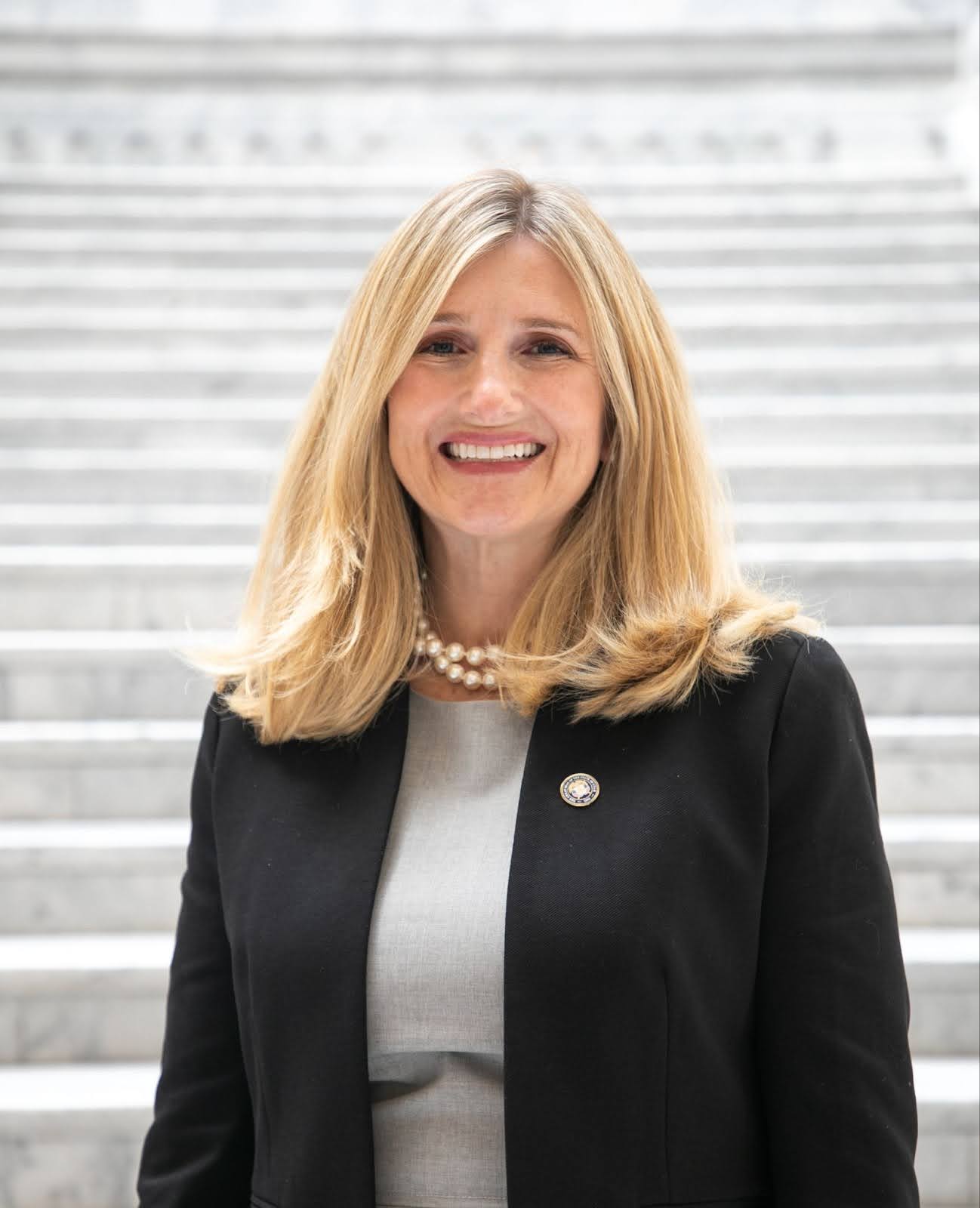
Margaret Woolley Busse was appointed by Governor Spencer Cox in January 2021 to serve as a member of his cabinet as the Executive Director of Utah’s Department of Commerce, Utah’s chief business regulatory agency. With an MBA from Harvard University and degrees in public policy and economics from Brigham Young University, Ms. Busse brings a wealth of experience in public service, social impact, and strategy consulting to her role. Ms. Busse is passionate about bringing trust back to technology, as it is crucial for Utah’s economy to thrive. Under her leadership, with direction from Governor Cox, the Department of Commerce has played a key role in holding social media platforms accountable for their harm to minors by helping to craft appropriate legislative measures and by filing lawsuits against TikTok, Meta, and Snap. In the emerging field of artificial intelligence, Ms. Busse, in partnership with the Utah legislature, has driven forward an innovative approach to AI, which includes the creation of the Office of Artificial Intelligence Policy, which is tasked with both providing regulatory relief to qualifying AI-focused companies and making regulatory policy recommendations through its policy learning lab. This new office enables Utah to encourage innovation, protect the public, and proactively observe and learn when it comes to the substantial new powers of AI. Through the work of this new office, Utah’s legislators passed a groundbreaking law that both creates guardrails and an innovation pathway for mental health chatbots. Finally, Ms. Busse worked with Utah’s legislature to pass the Utah Digital Choice Act–the first of its kind in the nation–to enable users to fully control and move their data seamlessly amongst social media platforms. Ms. Busse has been named a Most Influential Woman by Utah Business Magazine, received the Cyber Pioneer Award from the Utah Bar Association, was a Utah Women in Tech award finalist, and received RevRoad’s Championing Women in Business award. Ms. Busse is a Utah native, and she and her husband, Franz, have five children, ages 12 to 22. Her passion for public service began with many years of leadership roles in local government.
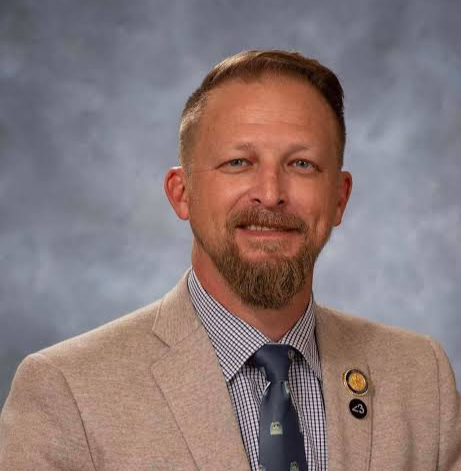
Brandon Guffey is a South Carolina State Representative. A product of the American Dream, Representative Guffey is an unapologetic conservative who shares our passion for faith, family, freedom and life. As a father, successful small businessman and conservative leader, he is prepared to continue fighting for the people of York County by serving them in the State House. In 2022, Representative Guffey lost his son Gavin to suicide after he was a victim of sextortion. He works to raise awareness for youth mental health and teenage suicide.
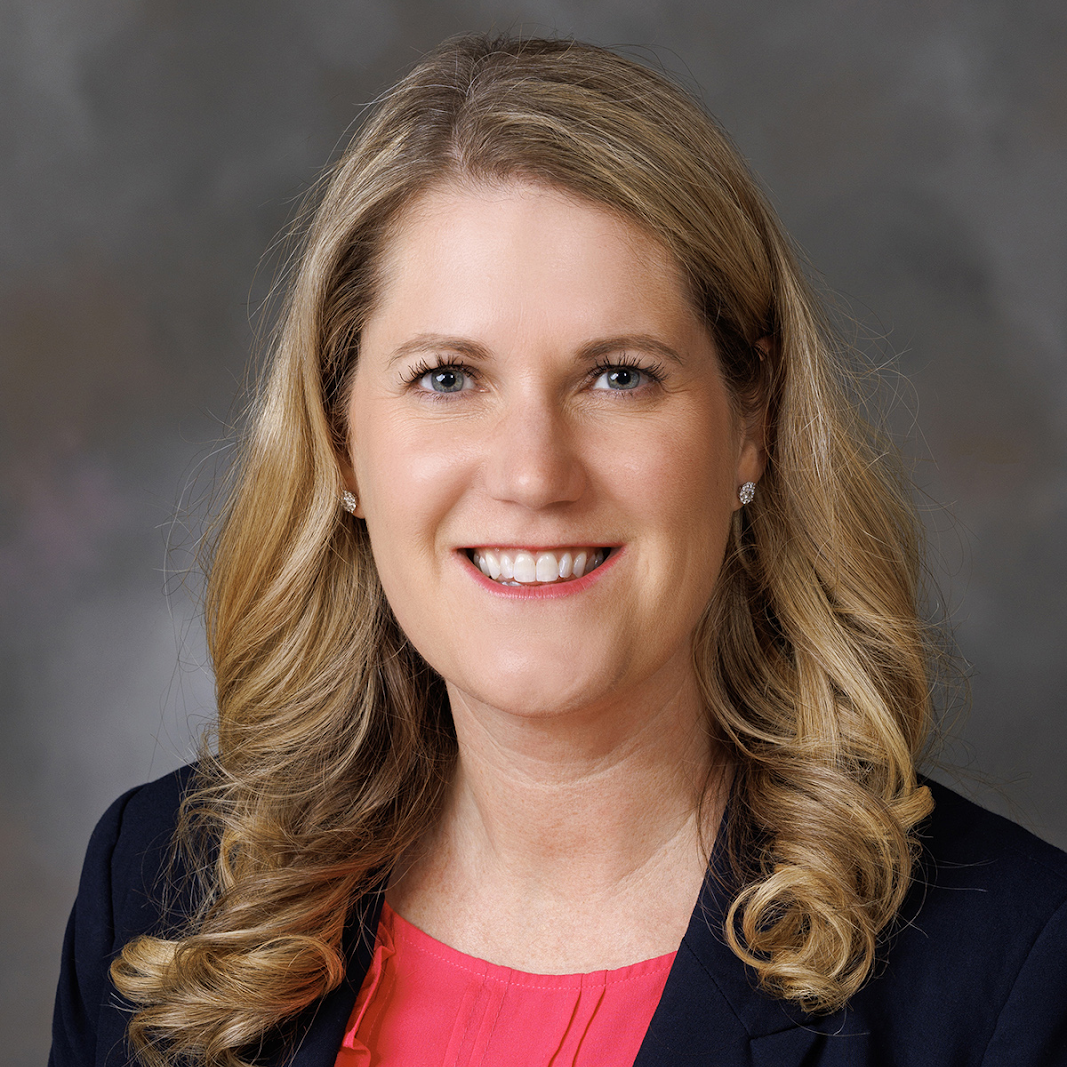
Born in Columbus, Nebraska, Carolyn Bosn has built a distinguished career in law and public service. After graduating from Columbus High School in 2001, she earned her bachelor's degree from Baylor University in 2005, followed by her law degree from Creighton University in 2009. Bosn's legal career includes serving as deputy county attorney for both Lancaster and Saunders counties, while also teaching as an adjunct professor and trial team coach at the University of Nebraska College of Law. She married Reginald Bosn on May 8, 2010, and they have four children: Heide, John, Betsy, and Zoe. Balancing her roles as attorney, business owner, and mother, Bosn was appointed to the Nebraska Legislature on April 7, 2023, replacing Suzanne Geist. She successfully ran for election in 2024, continuing her commitment to public service while remaining active in St. Joseph's Catholic Church and the Supreme Court Commission on Children in the Courts.
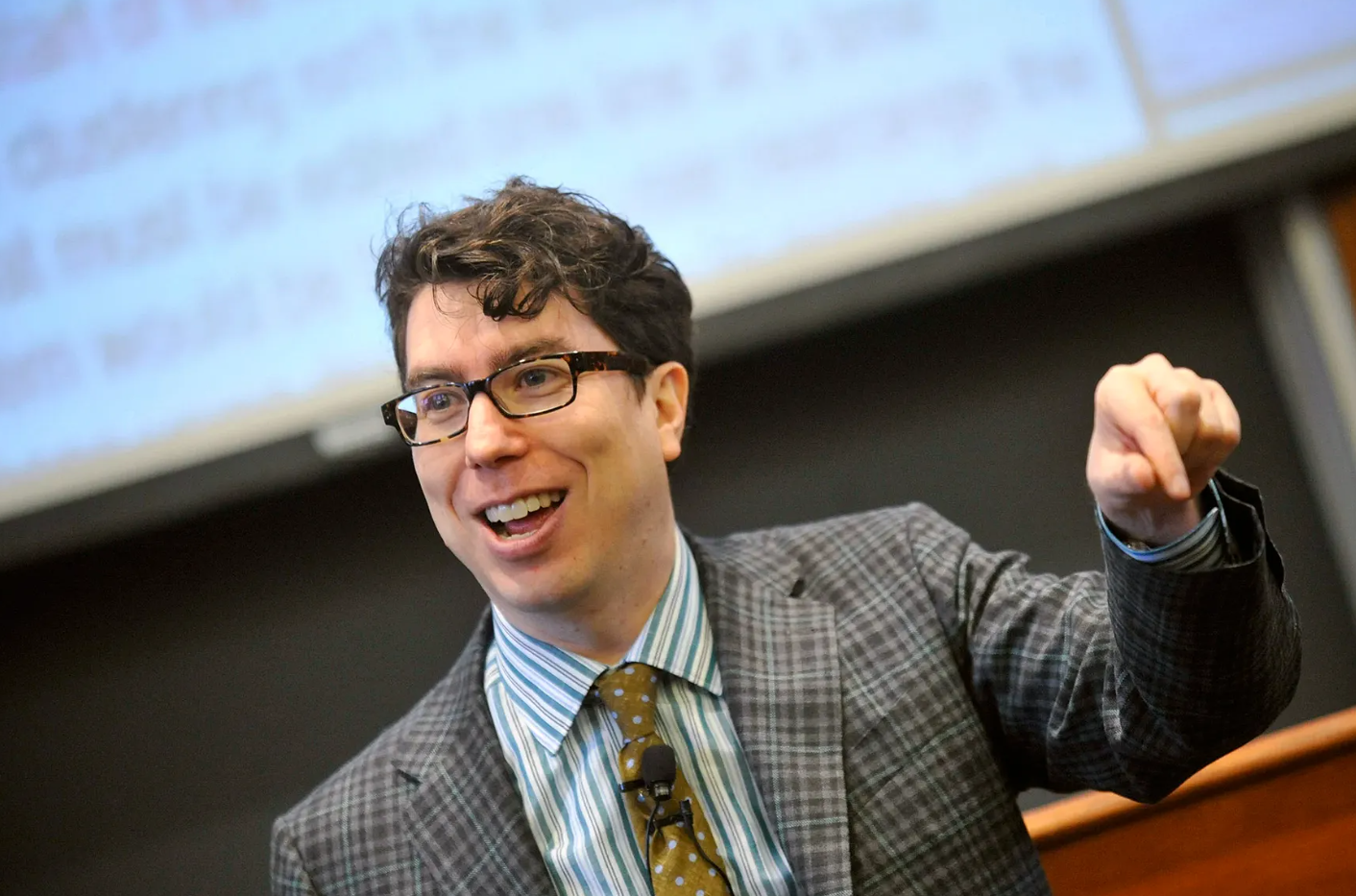
Jonathan Zittrain is the George Bemis Professor of International Law at Harvard Law School. He is also a Professor of Public Policy, Harvard John F. Kennedy School of Government, a professor of computer science at the Harvard School of Engineering and Applied Sciences, director of the Harvard Law School Library, and co-founder and director of Harvard’s Berkman Klein Center for Internet & Society. His research interests include the ethics and governance of artificial intelligence; battles for control of digital property; the regulation of cryptography; new privacy frameworks for loyalty to users of online services; the roles of intermediaries within Internet architecture; and the useful and unobtrusive deployment of technology in education.
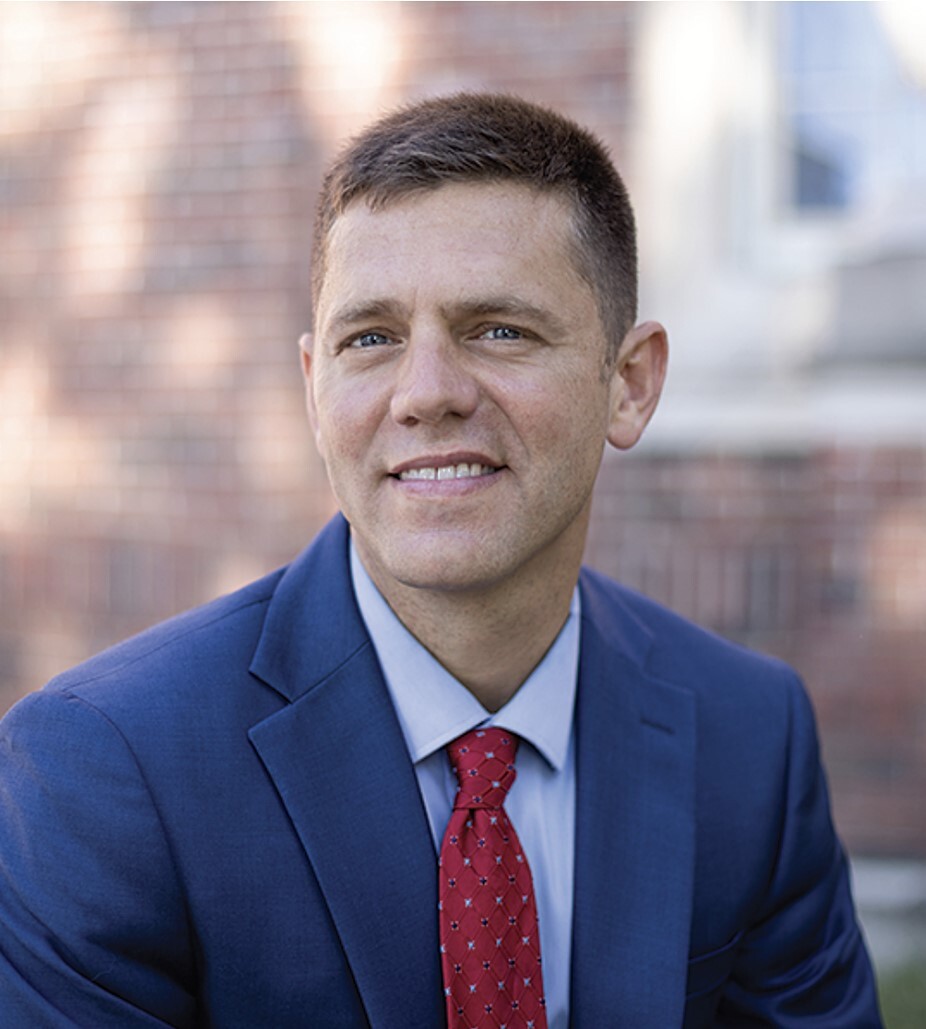
Senator John Velis represents the Hampden and Hampshire district in the Massachusetts State Senate, which includes his hometown of Westfield and 8 other cities and towns in Western Massachusetts. In the Senate, Senator Velis is Chairman of the Joint Committee on Veterans and Federal Affairs, Chairman of the Joint Committee on Mental Health, Substance Use and Recovery, and Vice-Chairman of the Joint Committee on Elder Affairs. Senator Velis is also a lawyer, a Veteran of the US Army Reserve, and is currently a Major in the Massachusetts Army National Guard. Prior to his election to the Senate, he was the State Representative for the 4th Hampden District in the Massachusetts House of Representatives from 2014 to 2020.
.jpeg)
Deb Schmill is the founder and president of the Becca Schmill Foundation, a nonprofit foundation started after the loss of her 18-year-old daughter, Becca, to fentanyl-laced drugs. The Foundation funds research, sponsors community education, and advocates for policies to protect youth from the harms Becca experienced. Before starting the Foundation, Deb had worked as an accountant, a computer programmer, and spent two decades as a climate activist, founding the Needham Community Farm. Most recently, Deb drafted a phone and social media-free school bill that was introduced in Massachusetts, and collaborated with Jonathan Haidt's policy team to turn her draft into a model bill for other states. Deb co-founded the Distraction-Free Schools Policy Project to support teams of volunteers in states as they advocate for the model bill. Deb is a past recipient of the Commonwealth Heroines Award, a Massachusetts award recognizing women who make significant contributions to their communities through civic engagement. She has a B.A. in Accounting from the University of Massachusetts at Amherst and recently completed the Policy Leadership Credential at the Harvard Kennedy School.

Deb Roy is a professor of Media Arts and Sciences at MIT, where he directs the MIT Center for Constructive Communication (CCC). He leads research in designing human-AI systems that foster dialogue, listening, and deliberation in ways that build civic muscle. Roy is also co-founder and unpaid CEO of Cortico, a closely affiliated nonprofit collaborator of CCC that develops, operates and supports a conversation platform designed to surface underheard voices and perspectives and create scalable dialogue networks. Roy serves on the board of the Knight First Amendment Institute, the FRONTLINE advisory council, and is a faculty associate at the Berkman Klein Center for Internet & Society at Harvard University. While on leave from MIT, Roy co-founded and was CEO of Bluefin Labs, a media analytics company that analyzed the interactions between television and social media at scale. Bluefin was acquired by Twitter in 2013 and served as Twitter’s chief media scientist.
Agenda
Breakfast
Enjoy a light breakfast before programming begins
From Crisis to Choice: Charting a New Path Forward
Frank McCourt, Project Liberty Founder
The Honorable Maura Healey, Governor of Massachusetts
People Over Platforms: A State’s Role in Reclaiming Digital Trust
Frank McCourt, Project Liberty Founder
Moderated by Tomicah Tillemann, Project Liberty President
Special Remarks
Solutions from the States
Senator Carolyn Bosn, Nebraska
Senator Erin Maye Quade, Minnesota
Moderated by Casey Mock, Anxious Generation Movement Senior Policy Director
Break
Partnership Between Constituents & Lawmakers
Senator John Velis, Massachusetts
Utah’s Digital Choice Act: A New Model for Digital Rights
Margaret Woolley Busse, Utah Executive Director of the Department of Commerce
Your Role In A Healthy Digital Future
Lunch
Special Remarks
A Time to Choose: Democracy in the Age of AI
So, Big Tech Tried to Kill My Bill
Representative Brandon Guffey, South Carolina
Casey Mock, Anxious Generation Movement Senior Policy Director
Moderated by Elizabeth Bramson-Boudreau, MIT Tech Review CEO and Publisher
Your Leadership Blueprint: From Ideas to Impact
Closing Remarks
Closing Reception
| Program | Date | Location |
| Private Dinner | August 6 @ 6:00 PM | Davio's Northern Italian Steakhouse |
| State Leadership Summit | August 7 @ 9:00 AM – 3:00 PM | MIT Media Lab |
Davio's Northern Italian Steakhouse
26 Fan Pier Boulevard
Boston, MA, 02210
MIT Media Lab
75 Amherst St
Cambridge, MA, 02139
Additional Information
For any questions, please contact events@projectliberty.io.
Travel Support
Project Liberty will cover meals for state legislators and—where permitted by state law—reimburse additional lodging costs.
Chatham House Rule
To encourage open conversation, some sessions will follow the Chatham House Rule. When in effect, participants may share what was said, but not who said it.
Community Commitments
This Summit is built on mutual respect, curiosity, and shared purpose. To help create an environment where everyone can participate fully, we invite you to read our Community Commitments in advance. They are shared principles—developed with input from our broader network—that guide how we listen, engage, and work together across differences.
Thanks for helping us create a welcoming and purposeful gathering.
Hosts
Project Liberty is building solutions to give people back control of their lives in the digital age by ensuring they have a voice, choice, and stake in a better internet. Launched publicly in 2021 by civic entrepreneur Frank McCourt, Project Liberty is building the technology, policy, and partnerships where the data is ours to manage, the platforms are ours to govern, and the power is ours to reclaim.
The Anxious Generation Movement (TAG) is a global public health campaign sparked by Jonathan Haidt’s bestselling book. Through coordinated action across policy, behavior, and culture, TAG brings together parents, educators, young people, and decision-makers to dismantle the phone-based childhood and restore healthy development rooted in play, independence, and real-world connection.

![[IMAGE] Project Liberty & The Anxious Generation present: “State Leadership Summit on Digital Choice & The Future of Social Media” // A special event for state policymakers // Private Dinner: Wednesday, August 6, 2025 | Main Event: Thursday, August 7, 2025 - 9:00 am to 3:00pm // Boston, MA - following the NCSL Legislative Summit](https://events.projectliberty.io/hs-fs/hubfs/PL_SaveTheDate_new-Logo+TAG-2.png?width=1552&height=1415&name=PL_SaveTheDate_new-Logo+TAG-2.png)
